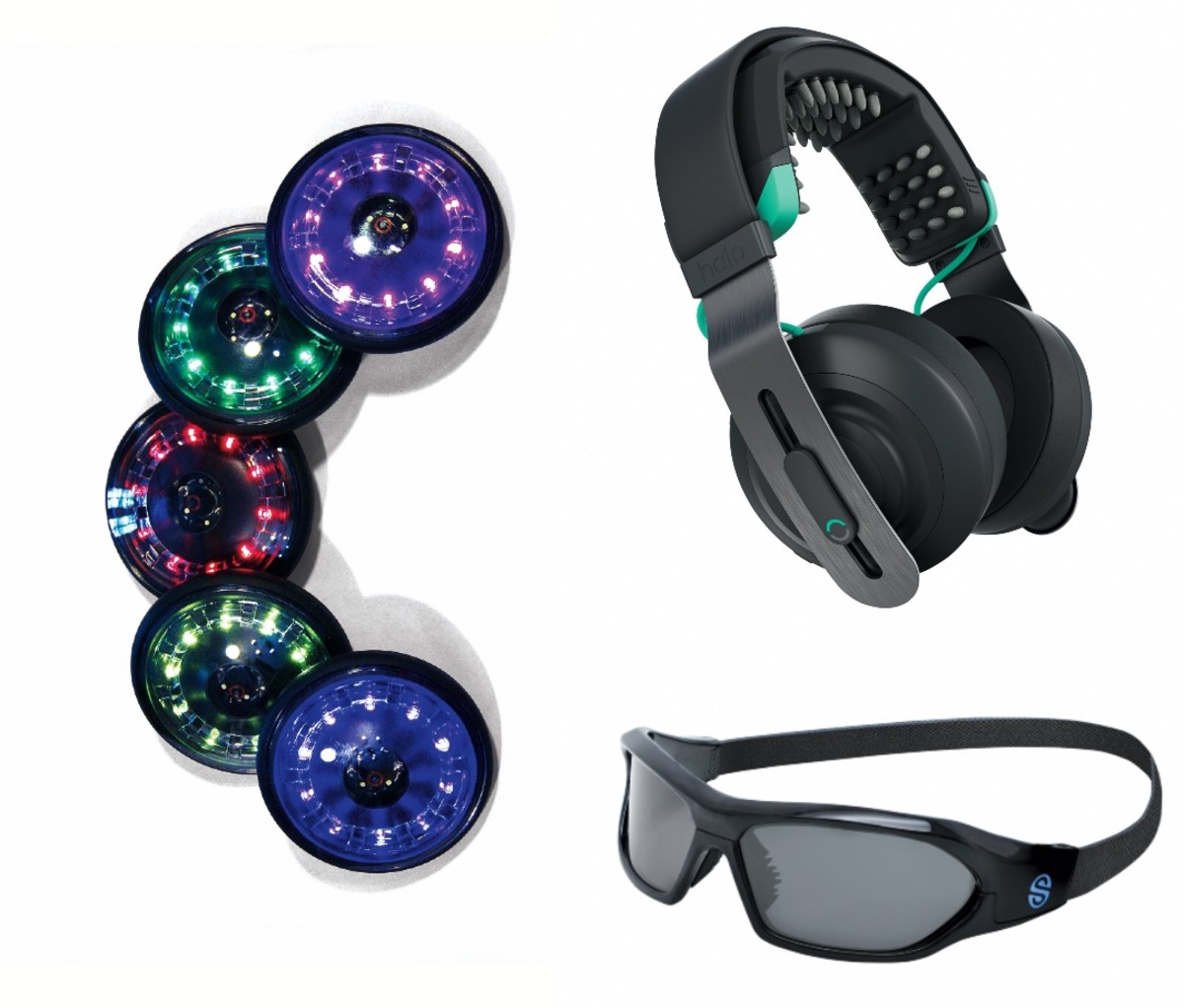Everyone’s looking for an edge. That’s why we’ll freeze ourselves in cryotanks, sweat buckets in infrared saunas, and jolt our muscles with e-stim. Now, athletes are turning to neurotechnology devices (high-tech workout tools) that train the brain for a leg up over the competition—even if that competition is simply beating last month’s PR. Perhaps the most high profile (and certainly most expensive) example is the FitLight Trainer (From $1,499; fitlighttraining.com), a system of lights you mount on the wall or floor, which flash in accordance to a training program. You have a set amount of time to deactivate them with your hands, feet, head, or a piece of equipment. The lights record reaction time, helping athletes who need lightning-fast foot- and hand-eye coordination (think soccer and basketball players) improve their speed and agility.
That improvement isn’t due to simple repetition; it’s due to changes in the brain, which neuroscientists call “plasticity.” That means it’s malleable, with the right tools. Consider a complicated city street map—the more you travel a specific route, the easier it is to remember. “It’s the same in your brain,” says Louisa Nicola, a neuroscientist and brain performance coach with Neuroathletics. “The more you perform an activity, the more second nature it becomes.” The FitLight Trainer helps you build more neural pathways—and use them faster and more often.

Another example in this new realm of cutting-edge workout tools is the Halo Sport 2 ($399; haloneuro.com), which looks like standard noise-canceling headphones, but is actually a neuro-priming tool. On the band you’ll find a set of silicone teeth. Don’t freak out, but those are electrodes that actually zap your brain’s motor cortex—the region that controls voluntary movements—with a low-level electrical current. This puts the aforementioned neuroplasticity into overdrive, which enhances the brain’s ability to learn and adapt to training.
Wear it for 20 minutes before warming up, then through a 60-minute workout, while your brain is in that accelerated state of learning, to master a specific skill faster. The Halo Sport 2 works best when you’re doing intense, repetitive movements and focusing on proper form, which is why CrossFitters and triathletes credit it for giving them an advantage.
“You know how they say it takes 10,000 hours to perfect an activity?” Nicola asks. “With the Halo Sport 2, you’ll only have to do 2,000 hours.” It activates your neurons so they fire more frequently; the more neurons firing simultaneously, the stronger the connection between your brain and muscles becomes.

The Matrix-esque Senaptec Strobe ($299; senaptec.com) goggles are capable of sharpening an athlete’s perception, awareness, reaction time, and motor skills by limiting sensory information. Don the eyewear, then perform your sport-specific drills. The liquid-crystal lenses are separated into quadrants capable of turning from transparent to opaque in nanoseconds. You can activate specific sections or customize the strobe pattern via the app or the goggles themselves.
The reduced information forces different parts of the brain to process what’s going on around you more efficiently—like noticing where your competition is on a football field or ice rink—so you can react faster.

Traditional workouts don’t stimulate as much of the nervous system, Nicola explains, but that stimulation is key if you want your workouts to mirror competitive situations in the real world. An NBA player isn’t just dribbling a ball for 48 minutes; he’s managing fatigue, audio distractions, and visual signals. The more pressure your brain is used to, the better off you’ll be in high-stress situations.
However, in the same way slapping a Fitbit on doesn’t automatically make you fitter, a neurotechnology device isn’t going to turn you into a super-athlete overnight. “Maintaining the consistency to change your brain over time is really hard,” Nicola says. If you don’t have your training, diet, and sleep routine fully dialed in, these high-tech tools might have a bigger impact on your wallet than your performance. But if you think you’re ready to make the leap from weekend warrior to elite athlete, maybe it’s time to hack your brain.
from Men's Journal https://ift.tt/2Z24M5x



No comments:
Post a Comment